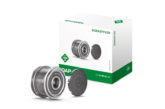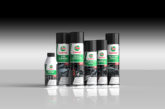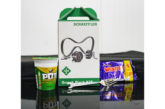
According to a recent survey, European consumers continue to favour internal combustion engine (ICE) models, especially plug-in hybrids, over the battery electric vehicles (BEVs).
Bloomberg Intelligence’s (BI) second auto-buying intentions survey revealed only 18% of respondents planned to buy a car in the next year saying they would opt for a BEV. This may force a watering down of pledges to ban ICE sales from 2035, according to BI, especially as 68% of those surveyed believed the 2035 deadline should be delayed.
BI’s study also found hybrids have gained in popularity, split evenly between plug-in hybrids (PHEVs) and hybrid electric vehicles (HEVs), though neither is yet reflected in sales, with shares of 8% and 10%, respectively, in 2023. Only 18% of respondents planning to buy a car in the next year said they would opt for a BEV, 46% said they preferred hybrids.
The results also pose a potential stumbling block to pure-plays like Tesla and Chinese new entrants, with the survey finding 74% of consumers would have an issue buying an imported vehicle.
Michael Dean, Senior Industry Analyst at BI, commented: “European carmakers are dialling back EV sales goals in 2024 due to rising consumer apathy. Our latest research shows less than one in five private buyers favour EVs, with nearly half preferring hybrids. This is a trend which plays to BMW, Mercedes and Toyota’s strengths, but disadvantages pureplay Tesla and China brands.
“Tesla’s sales outlook continues to deteriorate, as it fell to fourth from pole position (in August) in our buyers’ ranking of most-wanted brands as competition in the BEV space intensified. Audi now tops the list, closely followed by Mercedes and BMW. Porsche is not far behind as the most-sought-after luxury brand, ahead of Ferrari.
“Tesla’s continued price cuts, as it seeks to move about 1 million units of ramped-up capacity in its Austin, Texas, and Berlin plants may put off potential buyers concerned over resale values. Meanwhile, European consumers need reassurance over the quality, technology and second-hand values of imported Chinese brands.”
Consumers pointed to a lack of charging points, range anxiety and high prices as their top concerns over switching to BEVs, found BI’s survey.
European charging infrastructure is growing rapidly, though with only 780,000 public connectors as of 2023, it’s failing to keep pace with EV sales. It’s also well below the 1.4 million points needed by 2025 to meet BNEF’s base transition scenario. Charging and range anxiety are likely to continue to top the list of consumers’ concerns, notes BI, as 77% of BEVs registered in Europe in 2023 had sub-312-mile (500-kilometer) ranges.
In addition, the prices of new cars are too high in Europe, according to 83% of survey respondents, though most (27%) indicated they will go ahead with their purchases and save on other things. Still, 26% (down from 28%) are likely to delay a purchase, the survey also found, in anticipation of price cuts, and 25% intended to buy a lower-specification model.
Dean added: “Overall, brand loyalty in Europe looks strong, with 62% of survey respondents confirming they’re likely to buy the same marque and only 14% intent on changing (vs. 17% in August). Brand retention is highest in Germany, with just 10% of those surveyed unlikely to purchase the same car again. This bodes well for German automakers’ domestic market share of close to 60%.
“Stellantis’ Peugeot had the lowest loyalty rating, though it may draw comfort from responses to follow-up questions that suggested the main reason for changing brands were the ability to afford a more expensive car or the unavailability of a preferred model. Brand loyalty is key for legacy automakers to shield market share against the mounting threat of new entrants such as Tesla and lower-cost imported Chinese BEVs.”









